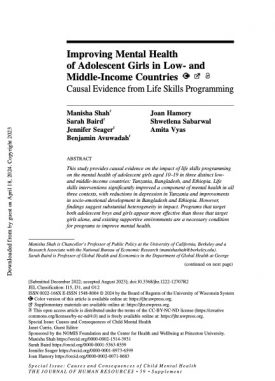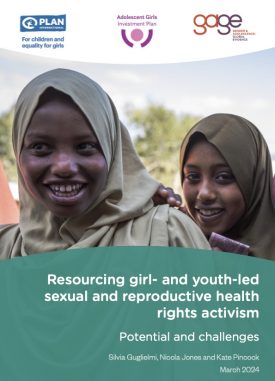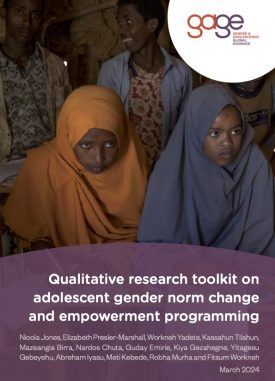This briefing paper draws on findings from a Gender and Adolescence: Global Evidence (GAGE) mixed methods research study to explore Gazan adolescent girls’ and boys’ access to and interactions with healthcare services. It draws on the responses of approximately 240 adolescents and 70 service providers and examines how gender relations and norms shape adolescent experiences.
Our research found that although health care services are widely available in Gaza, and adolescent health outcomes are generally good, most adolescents lack health care information –and services are not targeted to adolescent-specific needs and are generally poor in quality. Adolescents reported, for example, that they receive little sexual and reproductive health (SRH) information at school, with some girls explaining that they were unaware of menstruation until menarche. They also reported that the cost of health care is prohibitive for many, that facilities tend to be overcrowded and dirty, and that providers can be not only insensitive, but cruel.
We also found that gender norms shape adolescent health. Because their purity is a source of family honour, girls face increasing restrictions on their mobility as they progress through adolescence. This leaves them with little opportunity to engage in healthy exercise. Boys, on the other hand, become more likely to use substances—ranging from tobacco to tramadol—as they grow towards maturity. In addition, while child marriage is declining, approximately half of all girls become pregnant before the age of 20. Their uptake of contraception is low, due to a preference for early and high fertility, and their access to quality antenatal and delivery services is uncommon.
Suggested citation
Hamad, B. A., Gercama, I., Jones, N. and Hamra, E. A. (2017) ‘No one told me about that’: exploring adolescent access to health services and information in Gaza. London: Gender and Adolescence: Global Evidence.


